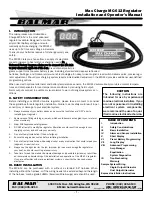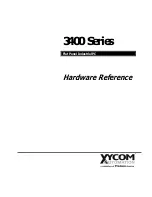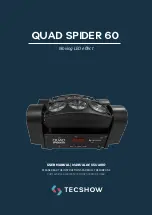
PHXTI-IM (05/13)
Page 11
5. After the refrigerant joints have been brazed, seal test the joints by pressurizing the
refrigeration system to 150 psig dry nitrogen and check each joint with a quality leak
detector.
6. Next, evacuate the refrigeration system in accordance with the pool heater system
manufacturer’s instructions, being sure to thoroughly remove all moisture from the system.
7. Charge the system in accordance with the pool heater manufacturer’s instructions.
After purging the water system of air, re-applying electrical power, start the system in accordance
with pool heater manufacturer’s instructions, and monitor the operation of the system through at
least two compressor start/stop cycles to ensure the system is performing properly.
C. Freeze Protection/Winterizing
In areas where freezing conditions are a rare occurrence, run the filtration system continuously
through the freeze period. Generally, during a light freeze, circulating water will not freeze.
In areas where freezing conditions are prevalent and more severe, implement the following
instructions to winterize the heat exchanger. Follow manufacturer’s instructions to winterize
other system components.
1. Disconnect all electrical power to the system, including the compressor unit and water
circulating pump.
2. At the two water connections to the heat exchanger, loosen the union joints, but do not
totally disconnect the unions.
3. Locate the drain plug at the bottom of the heat exchanger, remove it, and let all the water
drain out of the heat exchanger.
4. After ALL water has been drained from the heat exchanger, replace and tighten the drain
plug.
5. Allow the unions to remain loosely connected until the swimming pool is to be made
operational again. Tighten unions at that time.
6. After the system has been made operational again, check the heat exchanger plug and the
two (2) unions to ensure they do not leak.






























